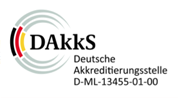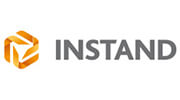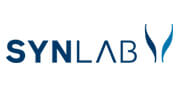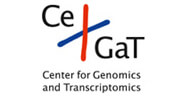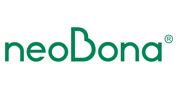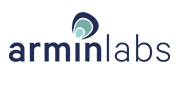LAB HOURS: MON - THU and SAT : 9:00 AM to 9:00 PM
FRI and SUN : 9:00 AM to 6:00 PM

Lecture - Newborn screening in 2011: benefit and burden
FML seminar: Metabolic Disorders in Infancy and State of the Art in Newborn Screening in Dubai, Dec 10, 2011

Newborn screening in 2011: benefit and burden
Prof. Dr. Peter Freisinger (MD)
Professor of Pediatrics, University of Technology, München, Germany
Director of the Department of Pediatrics, Klinikum Reutlingen
Director of the Metabolic Disease Center, Klinikum Reutlingen
Abstract
Newborn screening (NS) has first been applied for phenylketonuria in Europe more than 40 years ago and has been extended rapidly to congenital hypothyreoidism, galactosemia and congenital adrenal hypertrophy. It has helped to significantly reduce morbidity and mortality of these inherited disorders. At the beginning of the last decade the introduction of tandem mass spectrometry (TMS) enlarged the spectrum of diseases which can be screened during the first days of life considerably. Mainly organic acidurias, fatty acid oxidation disorders aminoacidopathies and hemoglobinopathies are analyzed. The technical conditions would allow screening for far more than 50 disorders. However, depending on the country only 3 to 27 disorders are screened. This discrepancy is due to the different disease prevalence in different countries (e.g. hemoglopinopathies are very rare in central European countries but frequent in the Middle East). A further explanation is the different ethical approach to the question, which disease should be screened and which not.
In NS only diseases, which can be cured or at least in which treatment improves the quality of life considerably, should be diagnosed. Unfortunately this aspect is not always considered in commercially available screening programs. Further, it is very important that the medical follow up of a patient detected by NS is warranted. Most of the disorders detected by NS are complex inherited metabolic disorders, which need special diet and medical treatment. This should be offered by specialized centers.
New technical developments will allow extending the spectrum of diseases in NS. Mainly storage disorders (e.g. Pompe disease, Fabry disease) are in the focus of research. In these disorders enzyme replacement therapy or cell therapy (stem cell or bone marrow transplantation) will provide new therapeutic possibilities.

Lab hours
MON - THU and SAT 9:00 AM to 9:00 PM | FRI and SUN : 9:00 AM to 6:00 PM




